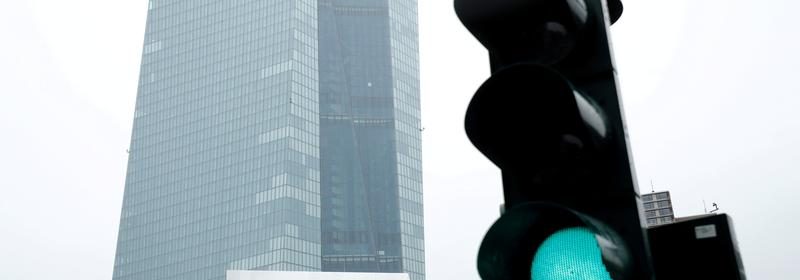ECB to chart new policy path next week

FRANKFURT (Reuters) -The European Central Bank will chart a new policy path at its next meeting to reflect its change of strategy and show it is serious about reviving inflation, ECB policymakers said on Monday.
Announced last week, the ECB’s new strategy allows it to tolerate inflation higher than its 2% goal when rates are near rock bottom, such as now.
This is meant to reassure investors that policy will not be tightened prematurely and cement their expectations about price growth, which has lagged below the ECB’s target for most of the past decade.
ECB President Christine Lagarde, her deputy Luis de Guindos, and Portugal’s central bank governor Mario Centeno said on Monday the new strategy will be incorporated into the central bank’s policy guidance at the July 22 meeting.
“Given the persistence that we need to demonstrate to deliver on our commitment, forward guidance will certainly be revisited,” Lagarde told Bloomberg TV.
The ECB’s current guidance says it will buy debt for as long as necessary and keep interest rates at their current, record-low levels until it has seen the inflation outlook “robustly converge” to its goal. It also commits the bank to reinvesting proceeds from maturing bonds for a long time after that.
Lagarde did not elaborate on how that message might change, simply saying the aim will be to maintain “favourable financing conditions”.
But Governing Council member Centeno later said he would back decoupling the ECB’s Asset Purchase Programme (APP), introduced in 2014, from interest rates.
“I understand that we gain from disentangling the APP and interest rates in the forward guidance,” Centeno told Politico. “In the current format one of the decisions is anticipating the other in a way that I don’t think is effective.”
ECB policymakers failed to agree on new policy guidance at their meeting last week.
Lagarde added this was not the right time to talk about dialling back stimulus and that the ECB’s Pandemic Emergency Purchase Programme (PEPP), could “transition into a new format” after March 2022, its earliest possible end-date. The PEPP, which is worth up to 1.85 trillion euros and is more flexible than the APP, was launched last year.
“We need to be very flexible and not start creating the anticipation that the exit is in the next few weeks, months,” Lagarde said.
De Guindos also said that the ECB should continue to underpin the economy in light of a new bout of infections with the delta variant of the coronavirus.
“The spreading of virus mutations in some EU countries shows we should not be complacent about the observed rise in confidence but continue the path of policy support,” de Guindos told an event organised by think-tank OMFIF.
Source: Read Full Article
